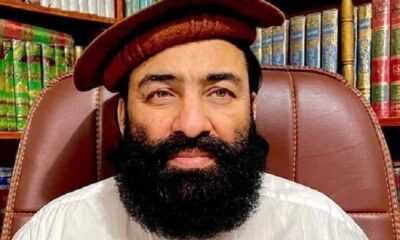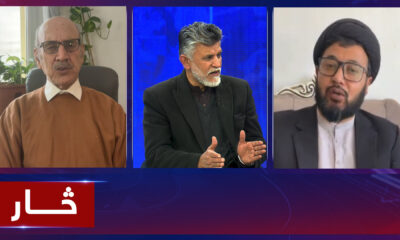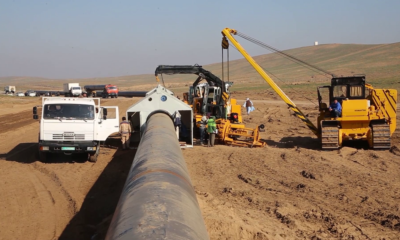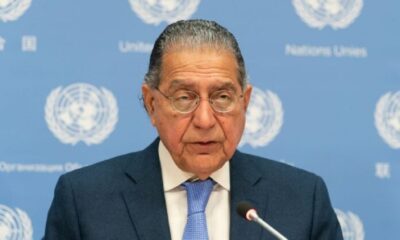Latest News
Top U.N. officials seek to ‘water down’ bans on women in Afghanistan

The United Nations is pushing the Islamic Emirate of Afghanistan (IEA) administration for more exemptions to its ban on most female aid workers, top U.N. officials said on Wednesday, while also expressing concern that foreign women working for international organizations and embassies could next be targeted.
Speaking to Reuters during a visit to Kabul, U.N. aid chief Martin Griffiths said that his message during meetings with Taliban officials had been: “If you can’t help us rescind the ban, give us the exemptions to allow women to operate.”
Last month, the IEA – who seized power in August 2021 – banned most female aid workers and stopped women from attending university after stopping girls from attending high school in March. Griffiths traveled to Afghanistan after a visit last week by U.N. Deputy Secretary-General Amina Mohammed.
Griffiths said some exemptions to the female aid worker ban had been granted in health and education and that there were indications there could be a possible exemption in agriculture. But he said much more was needed, with nutrition and water and sanitation services a priority to prevent severe illnesses and malnutrition during a severe humanitarian crisis in Afghanistan, Reuters reported.
“We have not seen the history of the Taliban (IEA) reversing any edict. What we have seen is exemptions that, hopefully, if we keep pushing them, they will water down those edicts to a point where we will get women and girls back into school and into the workplace,” Mohammed told reporters in New York on Wednesday.
Griffiths told Reuters that, following his recent discussions with the IEA, he was hopeful they would create a set of written guidelines to allow aid groups to operate with female staff in more areas with certainty in coming weeks.
“The next few weeks are absolutely crucial to see if the humanitarian community … can stay and deliver,” he said, while cautioning: “I don’t want to speculate as to whether we’re going to come out of this in the right place.”
The IEA did not immediately respond to a request for comment on its plans over guidelines.
During her visit last week, Mohammed met with the Shura – the leadership council that issues the bans – in the southern Taliban heartland of Kandahar. She said there is a concern that they may next prohibit “international women from international organizations and embassies.”
“It hasn’t happened so far,” said Mohammed, adding that they had been expecting a possible announcement all month. “I don’t say that it won’t, but clearly the pressure that we’re putting on has stopped that rollback as quickly.”
Griffiths said the United Nations would continue operating in Afghanistan wherever it could, but there was a concern that international donors might not want to commit to the huge financial cost of aid at around $4.6 billion a year.
“I lose sleep about this, I really do,” Griffiths said, adding that he would meet with donors in coming weeks to make the case for why Afghanistan needed help during an intense humanitarian crisis in which 28 million people were in need of aid, including 6 million on the brink of famine.
Latest News
Mines ministry says work on TAPI project to speed up as weather improves
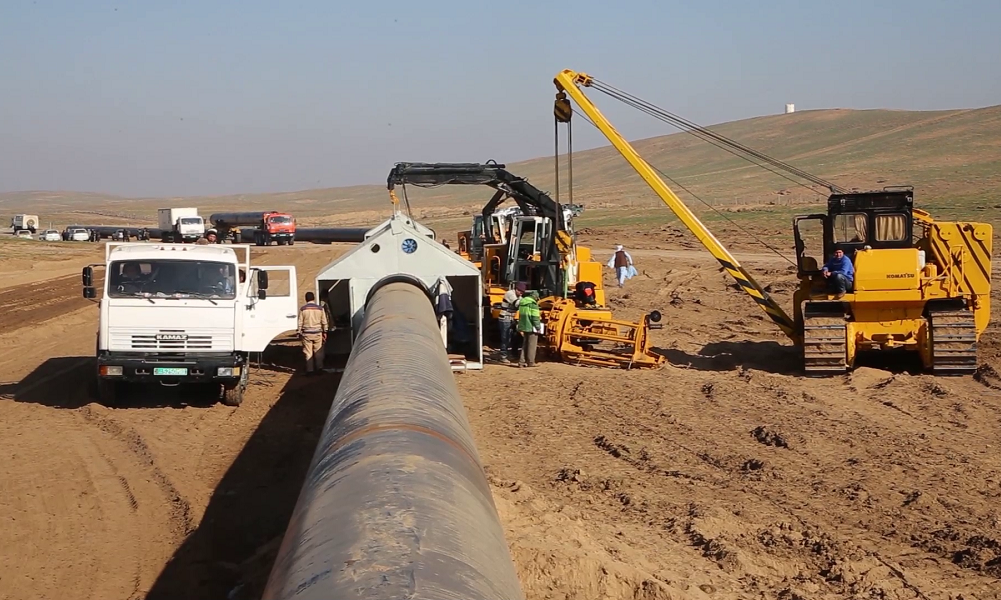
Homayoun Afghan, the spokesperson for the Ministry of Mines and Petroleum, says with rising temperatures in the country, work on the TAPI pipeline project will accelerate. He added that all partners involved in the TAPI project are eager to expedite progress.
He emphasized that since the launch of the project’s practical work, 1,700 kilometers of the TAPI gas pipeline route have been surveyed, and 9 kilometers of pipeline have already been laid within Afghan territory.
The ministry officials stated that the expansion of the TAPI project will create hundreds of new jobs for citizens in operational, security, technical, and logistical sectors of the project.
“First, this project will help create jobs for Afghans. Second, it will strengthen Afghanistan’s economy. Third, we can derive direct positive benefits from this project,” said Mohammad Bani Afghan, an economic expert.
Economic experts further highlighted that once the project is operational, Afghanistan is expected to earn approximately $400 million annually in transit fees. Additionally, the project will spur economic growth and reduce unemployment rates in the country.
Latest News
Pakistan to file complaint with UN against IEA and India
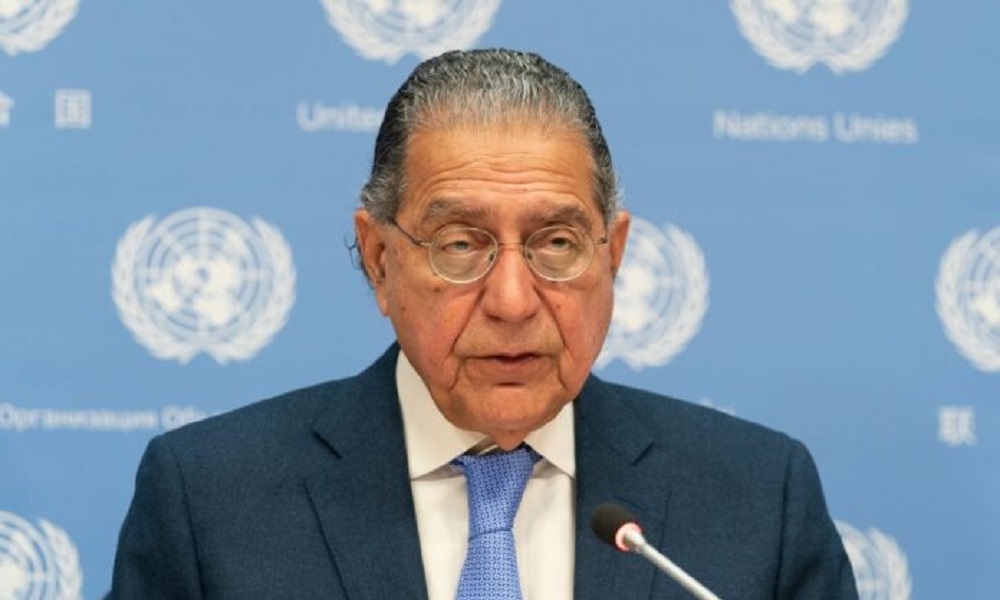
Pakistan’s Permanent Representative to the United Nations, Munir Akram, says Islamabad will submit a complaint to the UN against the Islamic Emirate of Afghanistan (IEA) and India for “supporting terrorism.”
In an interview with Pakistani media, Akram alleged that IEA was involved in the attack on the Jaffar Express train.
He claimed, “There is evidence against the Taliban government [Islamic Emirate]. This time, we have traced communications and compiled evidence that we will certainly present. Even previously, if you review the latest report by the UN’s Counter-Terrorism Monitoring Team, it was clear that terrorism originates from Afghanistan, and the government there is involved in this matter.”
The Pakistani diplomat further accused India of using Afghan soil to promote terrorism.
Meanwhile, Pakistan’s military spokesperson, Ahmed Sharif Chaudhry, asserted during a press briefing that terrorists involved in the recent train incident and prior attacks had used weapons of Indian and Afghan origin.
“The terrorists behind the train attack in Balochistan and previous incidents used Indian-made weapons and arms left behind in Afghanistan. We must recognize that the primary backer of this Balochistan terrorist attack and past events is our eastern neighbor [India]. Militants based in Afghanistan have consistently fueled instability in Pakistan,” said Chaudhry.
However, experts argue that Pakistani authorities, grappling with weak governance in ensuring citizen security, are attempting to deflect blame onto Afghanistan to obscure their own inefficiencies.
Meanwhile, the Islamic Emirate has strongly denied any involvement in Pakistan’s security challenges, particularly the recent Balochistan attack, dismissing the allegations as baseless.
IEA has repeatedly urged Pakistani officials not to attribute their domestic security failures to Afghanistan.
Latest News
Trump says he would have kept Bagram Air Base

US President Donald Trump has once again said that if he had remained the president, Bagram Air Base in Afghanistan would have been kept due to its proximity to China.
In his speech on Friday at the US Department of Justice, Trump claimed that Bagram Airfield is now occupied by China.
He also said that the withdrawal of the United States from Afghanistan in the way it was done was “the most humiliating time” in the history of the United States.
“I would have been out faster than them. I was the one that got it down to the right level. but we would have kept Bagram, the big Air Force base. We would have kept it. Right now, China occupies Bagram and the reason we would have kept it is because it is one hour away from where China has and builds its nuclear missiles and weapons,” Trump said.
“And they gave that up in the dark of night, they left the lights on and they left the dogs behind. By the way, a lot of people say what about all the dogs. They had a lot of dogs and they left the dogs behind and what a shame, what a shame. The way we got out, I think it was the most humiliating time in the history of our country,” he added.
Trump said that if he had remained the president, the US would have left Afghanistan “with dignity and strength.”
He suggested the way the US withdrew from Afghanistan probably got Russia attack Ukraine.
The Islamic Emirate has previously rejected Trump’s claim that China has seized Bagram Airfield.
-

 Latest News4 days ago
Latest News4 days agoKabul Airport bombing suspect not a top-level planner of deadly attack: FBI
-

 World5 days ago
World5 days agoZelenskiy in Saudi Arabia as US voices hope for Ukraine peace talks
-

 World4 days ago
World4 days agoPhilippines’ ex-President Duterte arrested at ICC’s request over ‘drugs war’ killings
-
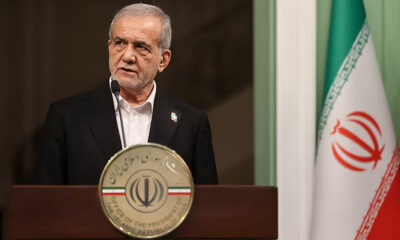
 World4 days ago
World4 days agoIran’s President to Trump: I will not negotiate, ‘do whatever the hell you want’
-
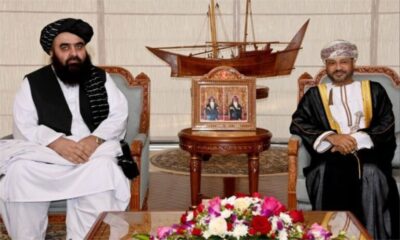
 Latest News5 days ago
Latest News5 days agoAfghanistan’s foreign minister meets with Omani counterpart for talks
-

 Sport4 days ago
Sport4 days agoAsian Cup: Afghanistan’s beach soccer team arrives in Thailand
-
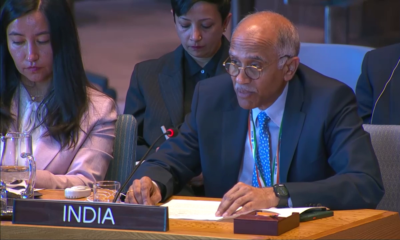
 Latest News3 days ago
Latest News3 days agoIndia says ‘special’ ties have been foundation of engagement with Afghanistan
-
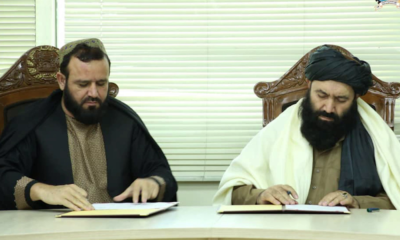
 Latest News2 days ago
Latest News2 days agoMoRRD signs deal for Wakhan road construction




